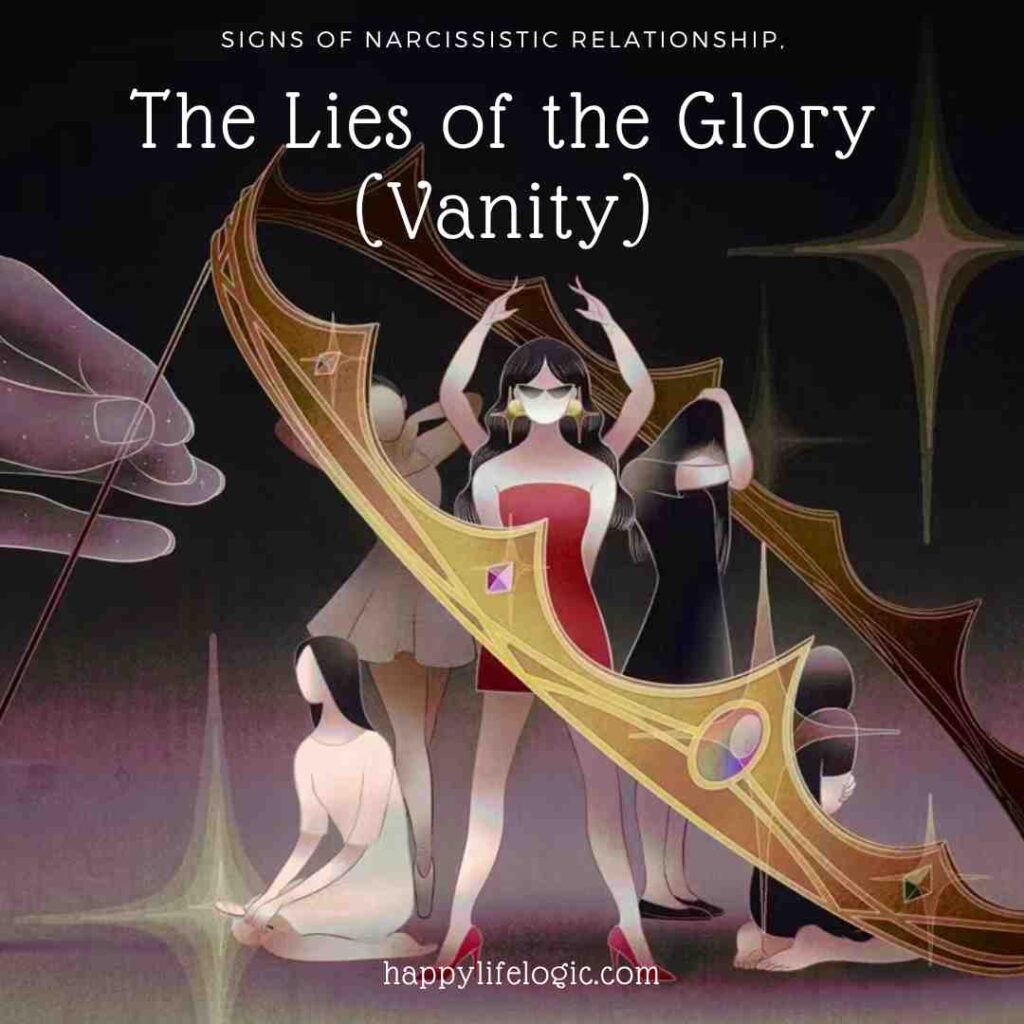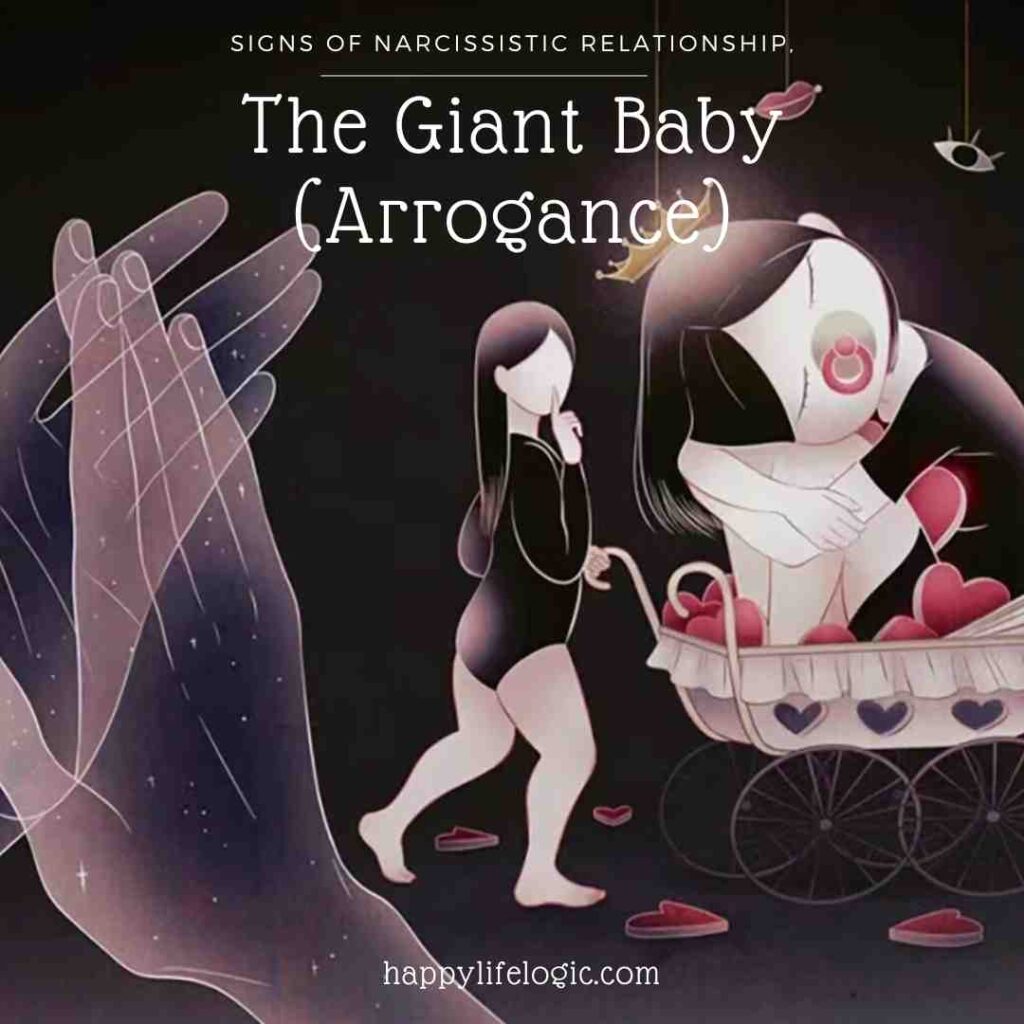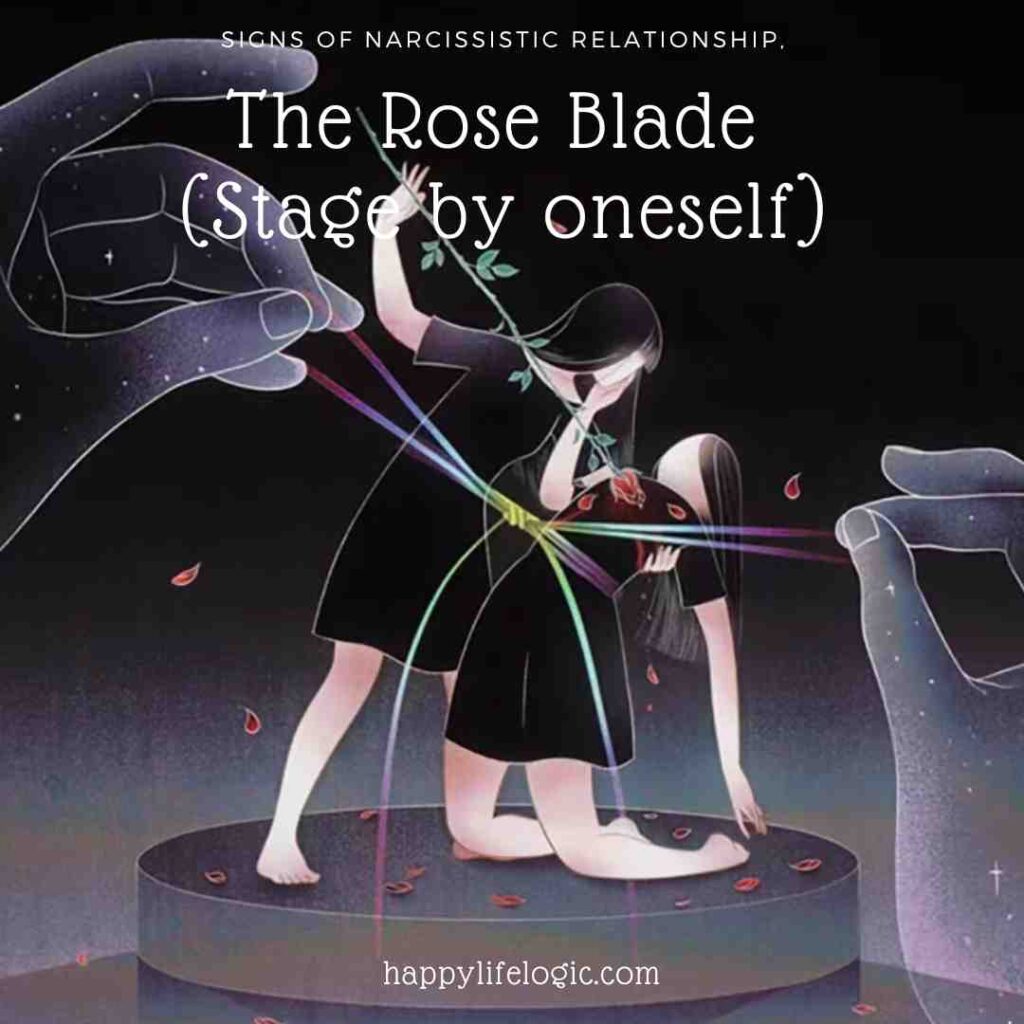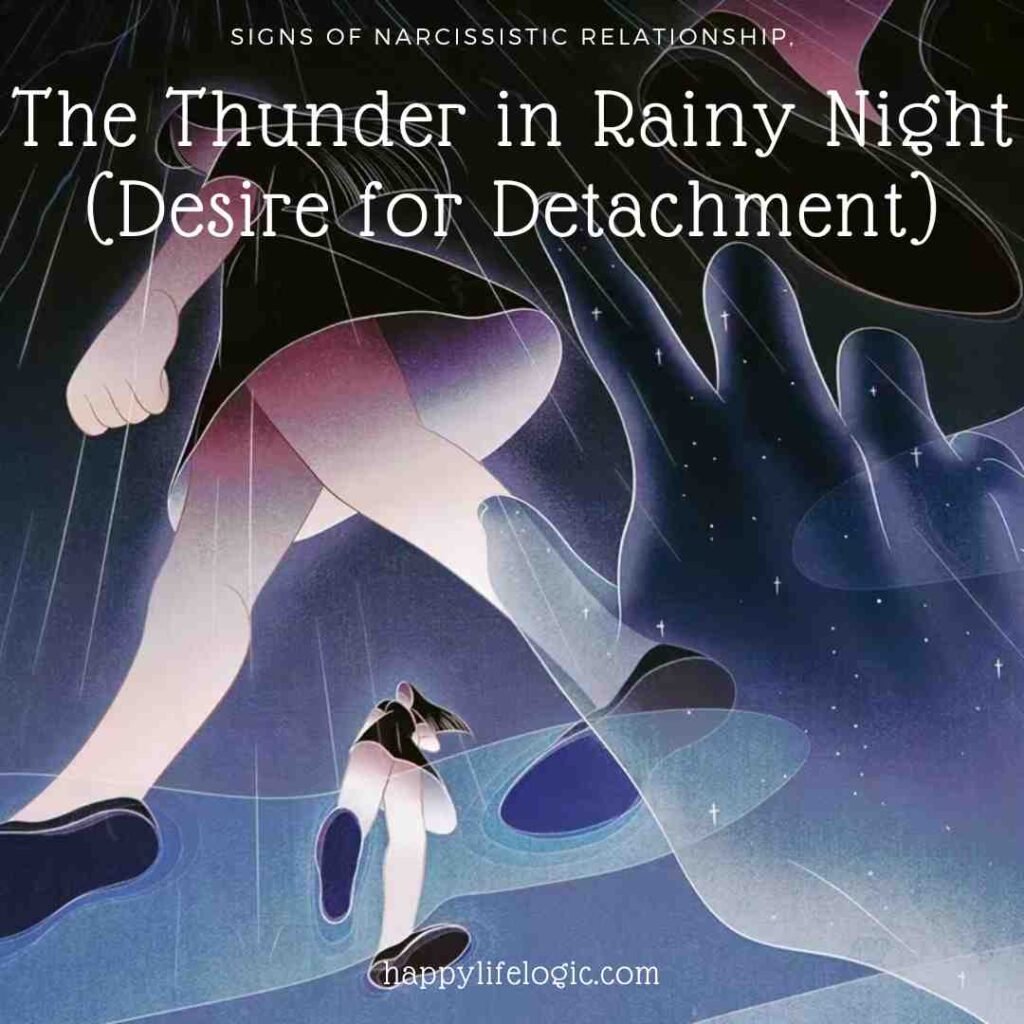Hey there, lovely readers!
Today, I want to talk about something more common than you might think—narcissistic relationships.
But what is a narcissistic relationship, and how do you know if you are in one?
Spotting the red flags early on will save a lot of heartbreak and trauma. That is why I will give you the stages of a narcissistic relationship and how to cope with it.
I’ll also try my best to add some of my personal experiences that some of you might find relatable.
So grab a cup of your favorite comfort drink as we dive right into the stages of a narcissistic relationship.
Narcissistic Relationships
When you are in a narcissistic relationship, you’ll notice some changes happening. In the beginning, it seems like your partner sees you as the ideal love of their life, to the point where nothing you do seems to meet their expectations.
You might notice that your partner takes and takes, as you do your best effort in the relationship while they offer less and less in return. Slowly, all of these will take a toll on you and you’ll find yourself emotionally, mentally, and spiritually drained, possibly even facing financial challenges.
And the icing on top of this messed-up cake—you are to bear the blame for it all!
But worry not; there are ways to spot a narcissist and know if you are in a narcissistic relationship. Below are the stages of a narcissistic relationship and how to cope.
10 Signs of a Narcissistic Relationship and How to Cope
When going into a relationship, we always hope that the person we offer our heart to will handle it with care and love. But not all love stories end up with a happily ever after.
This is especially true if you’ve fallen victim to a narcissistic partner. Below are some of the stages of the narcissistic abuse that some people, including myself, have experienced.
Sign 1: The Perfect Beginning
Imagine meeting someone who seems to be absolutely perfect—someone who seems to come out of your dreams.
You meet them and they sweep you off your feet with their charm, charisma, and confidence. You realize one day that you’ve fallen head over heels for them, and you can’t believe your luck.
This phase, my dear friends, is called the honeymoon phase.
During this stage, the narcissist can be compared to a skilled magician, performing tricks that make you believe that you’ve found ‘the one,’ your soulmate.
They mirror your desires, share your interests, and shower you with affection and attention. Your life with them feels like a fairy tale. But in reality, you’ve fallen in love with a narcissist.

Sign 2: The Unmasking
Now, here’s where things start to get interesting.
As time goes by, the magic starts to fade. You begin to notice cracks in the façade, and the person who once seemed so perfect starts to reveal who they really are.
In my own experience, I remember feeling like I was dating two different people. The charming, caring partner from the beginning was slowly changing into someone entirely different.
To me, they started becoming self-absorbed, constantly demanding validation and attention. To the point that I had to set aside my feelings to cater to their ego.
Sign 3: The Emotional Rollercoaster
You might need to buckle because the emotional rollercoaster is about to kick into high gear. In this stage, you’ll experience wild ups and downs, making you feel dizzy.
One moment, the narcissist is love-bombing you, showering you with affection, and making you feel like the most special person in the world.
But just as quickly, their treatment may switch. They suddenly try to devalue your efforts and tear you down. You might also notice them overly criticizing you, which makes you doubt yourself.
It is a constant swing that leaves you feeling like you’re on top of the world and feeling like you’ve hit rock bottom.

Sign 4: Isolation
As the relationship progresses, you might start to feel isolated from your friends and family. This is because the narcissist will try to alienate you from your support system, making it harder for you to ask for advice or help from your loved ones.
Personally, I found myself spending less time with friends and family because my narcissistic partner wanted all of my attention. They convinced me that they were the only ones who truly cared and understood me.
Looking back, I realized it was a slow but steady spiral. It was only when everything was over that I could see how I became incredibly isolated.
Sign 5: The Gaslighting Game
Next comes the gaslighting.
Gaslighting is a mental manipulation tactic that narcissists are good at. For them, playing mind games is second nature, where they try to make you doubt your own truth and reality. They might deny some things that they said or did, twist the truth, or make you feel like you are going crazy.
I vividly remember moments when I questioned my own memory and sanity. A narcissist would say one thing and then completely deny it later. This experience left me feeling utterly confused and disoriented.

Sign 6: Self-blame
The constant gaslighting and emotional turmoil brought about by the narcissistic partner can leave their other half questioning their own worth, which results in a cycle of self-doubt and guilt.
Sometimes, the victim might think:
“If it’s not the narcissist’s fault, then it must be theirs.”
Sign 7: The Breaking Point
Every rollercoaster ride comes to an end. Eventually, you will reach your breaking point.
It could be a moment of clarity or a sudden realization that this isn’t how a healthy relationship should look. It could be that you simply break due to sheer exhaustion from the constant distress.
For me, it was a combination of these two factors. I reached a point where I couldn’t take it anymore. I had to break free from the narcissistic abuse cycle of being showered with love and suddenly being devalued. I got exhausted from all the gaslighting and emotional rollercoasters.
Sign 8: Breaking Free
Deciding and finally ending a narcissistic relationship is not easy, but it is important for your well-being.
It took a huge amount of strength, courage, and determination, but I knew I had to do it for my own sanity.
I began by seeking therapy, which gave me the valuable tools to understand the dynamics of my relationship and heal from all the trauma and emotional wounds.
I also started to reach out to my friends and family for support. I am thankful to the people closest to me—my friends and family—who were there patiently waiting for me to come back into their lives.
Sign 9: The Healing Journey
Healing from a narcissistic relationship is a journey of self-discovery and self-love. It’s about rediscovering your sense of self-worth and rebuilding your life from the ground up.
I started doing things and activities I loved, rekindled old passions, and focused on nurturing my mental and emotional health. It was a process of unlearning the toxic patterns that I acquired during my time with the narcissist.

Sign 10: The Power of Self-Awareness
One of the most valuable lessons that I learned from my experience is the importance of self-awareness. Understanding the stages of a narcissistic relationship and recognizing the red flags is very important.
Being aware of the mind games that narcissists play and their emotional manipulation tactics empowers you to make informed choices and protect your own well-being. Being self-aware is your shield from their attempts to manipulate you.
Bottom Line
In the end, going through the stages of a narcissistic relationship is a journey that many of us unfortunately have to experience. But it is also a journey that helps you grow, be more resilient, and lead you to self-discovery and personal development.
If you are reading this and find yourself recognizing the signs as familiar or even applicable to your own life, know that you are not alone. There are people who are willing to help you, and there is hope for healing and reclaiming your life.
Remember that you deserve love, respect, and happiness.
Do not let your experience with a narcissist define your worth. Break free, and don’t be afraid to start taking the first step on your healing journey. Rediscover yourself, and once more, find the incredible person that you truly are.
Lastly, I would like to thank you for joining me on this journey through the stages of a narcissistic relationship. I sincerely hope that sharing my story can offer support and inspiration to anyone facing similar challenges.
Stay strong, and always remember your worth.
After reading the stages of a narcissistic relationship, feel free to offer some kind words of encouragement in the comment section below.
Read Mr. Tomasio’s article here to identify if people tell lies in their ‘greater good’ and Narcissist’s rationale.